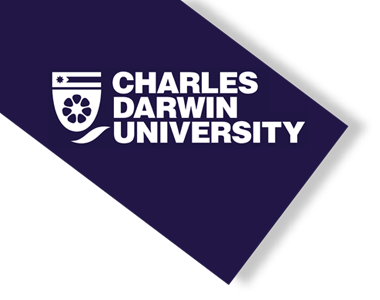Bachelor of Health Science
Charles Darwin University
About
*** This course has been replaced by the Bachelor of Health Science WHSC01 from 2018 and applicants should refer to this newly accredited course when applying.
Students enrolled in the BHSC will be able to continue to re-enrol however consideration should always be given to transferring to the latest course version.
*** Graduates of this course will acquire the knowledge and skills required to work in areas of health promotion, Indigenous health, and health services management.
The course also offers a specialist stream in occupational therapy designed to provide a pathway into the Master of Occupational Therapy offered by Flinders University.
The course has an emphasis on understanding the challenges of working in diverse contexts of urban, rural and remote communities.
It also offers an ongoing pathway for VET graduates as well as prerequisite knowledge and skills for graduate programs in allied health, public health and medicine.
This course has a range of flexible delivery options that include workshops, online, face-to-face and external learning platforms.
Students have the option to choose from streams in:
Health Promotion, Health Services Management, Occupational Therapy or Public Health.
Structure
Common(2 units) - 20
Common units totalling 20 credit points as detailed below:
CUC107
(compulsory)
Plus either:
CUC100
(new title from 2016) (recommended for this course)
or
CUC106
Select Common Units to find out more about individual units and advanced standing options.
Core(16 units) - 160
Compulsory Core units totalling 160 credit points from units detailed below. HSC101 Australian Health Care Systems (replaced by HSC121 from 2020) HSC111 Ethics in Health Care HSC112 Basics of Epidemiology SWK102 Communication Skills (recoded from SWK142B in 2016) HEA230 Cultural Competence in Healthcare (recoded to HSC230 Cultural Safety in Healthcare from 2018) HSC201 Health Promotion (replaced by HSC132 from 2020) HSC203 Indigenous Health Perspectives HSC205 Health Care Policy NUR210 Health Sociology (recoded to HSC210 from 2018) PSY209 Social-Cultural Psychology (replaces PSY202 from 2016) HSC318 Rural and Remote Health (new title from 2015) HSC319 Health Science Project A (new title from 2015) HSC329 Health Science Project B (new title from 2015) NUR342 Evidence Based Health Research and Practice (previously NUR248) PHM301 Exploring Public Health SWK301 Working with and Developing Communities (recoded from SWK343 in 2016)
Specialist Electives(4 units) - 40
Specialist Elective Units totalling 40 credit points selected from the list of available units detailed below: HEALTH PROMOTION (40 credit points) PSY140 Introduction to Psychology A PMO201 Project Management HSC202 Social Media and Marketing in Health Promotion (new unit title from 2015) HSC204 Chronic Conditions Management HEALTH SERVICES MANAGEMENT (40 credit points) BCO101 Fundamentals of Marketing (replaces CMA100 from 2012) MAN105 Introduction to Management (CMM101 replaced BCO102 in 2015 then CMM101 was recoded MAN105 in 2016) PMO201 Project Management PSY140 Introduction to Psychology A OCCUPATIONAL THERAPY (50 credit points) Pathway to Flinders University's Master in Occupational Therapy Students in this pathway must adhere to this study plan and complete all five units listed SBI171 Anatomy and Physiology 1 SBI172 Anatomy and Physiology 2 OCCT1001 Introduction to Occupational Therapy (cross institutional through Flinders University) OCCT2001 Introduction to Occupational Science (cross institutional through Flinders University) REHB2001 Neuroscience for Therapists (cross institutional through Flinders University) PUBLIC HEALTH (60 credit points) provides a pathway to Flinders University's Graduate Diploma of Environmental Health Practice Students in this specialist stream complete all six specialist units listed and should not complete any general electives PSY140 Introduction to Psychology A SBI105 The Life of Cells (last offered 2016) SCH104 Introductory Chemistry PMO201 Project Management HSC202 Social Media and Marketing in Health Promotion (new unit title from 2015) HSC204 Chronic Conditions Management
Electives(2 units) - 20
Units totalling 20 credit points selected from undergraduate units offered by the University. Students may select units from any of the approved specialisation sequences not already completed as electives if desired. When selecting electives choose units at a suitable level. The first number in each unit code indicates the year level at which the subject is taught. Undergraduate units are coded at 100 to 300 level, therefore units coded as HSC1xx, HSC2xx and HSC3xx, would be first, second and third year units respectively. Suggested electives could include: IND150 Indigenous Knowledges and Experience: History and Colonisation (recoded from ATI150 in 2016) CIK305 Cultural Transactions: Communication and Negotiation SWK405 Skills for Regional and Remote Practice (replaced by SWK318 from 2019) (recoded from SWK440A in 2016) HCS260 First Humanitarian Mission (Project) (20cp) Occupational Therapy (OT) pathway students are only required to complete one general elective at 300 level as they must complete five specialist elective units (as per the study plan). Public Health (PH) specialisation students are not required to complete any general elective units as they are required to complete six specialist elective units.
- 240
Total Credit Points
Entry requirements
Admission requirements are met by one of the following: Successful completion of the Northern Territory Certificate of Education and Training (or equivalent) and the awarding of an Australian Tertiary Admissions Rank (ATAR) of at least 60*. Successful completion of a national qualification at Certificate IV level or higher. Successful completion of at least 0.5 year of full-time study (or equivalent) of a higher education degree/diploma. Overseas secondary or tertiary qualifications considered equivalent to the above Australian qualifications. Attainment of a STAT Multiple Choice score of 135 (or a score of 145 if prior to May 2010). Successful completion of the Tertiary Enabling Program, the Preparation for Tertiary Success courses, or other recognised tertiary preparation course. Submission of an acceptable personal competencies statement and/or employment experience. * After any applicable adjustment factors have been applied.
Institution
